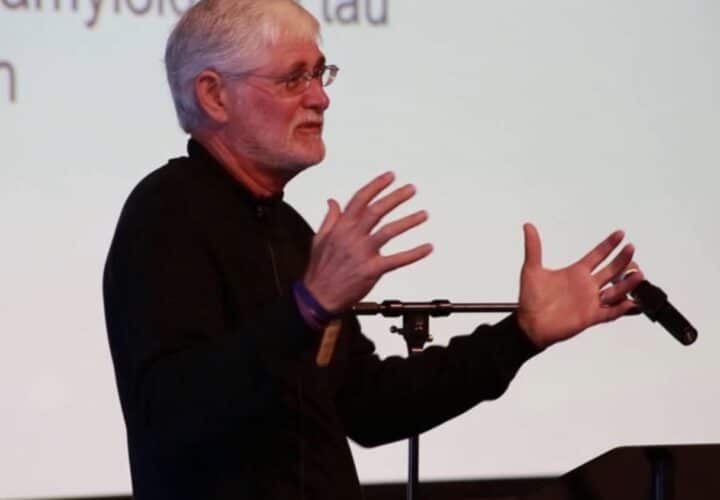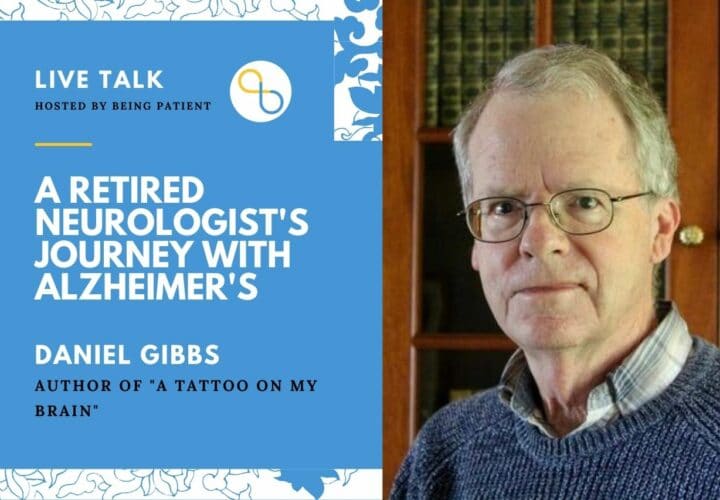On the last day of the public comment period for CMS's Aduhelm coverage proposal, former pediatrician Alan Schooley, now living with early-onset Alzheimer’s, shares his perspective in an op-ed cowritten with his wife Kim Schooley.
UPDATE: 3 March 2024, 8:39 P.M. ET. In February 2024, Biogen took Aduhelm off the market, citing financial concerns. Although the drug did receive accelerated, conditional FDA approval for the treatment of early Alzheimer’s disease in 2021, it is no longer available to new patients. The company announced it would sunset trials in May 2024 and cease supplying the drug to current patients in November 2024.
I’m a 52-year-old pediatrician diagnosed with younger-onset Alzheimer’s disease in November 2020. Alzheimer’s is not my story, but now it’s my life. This is what happens when Alzheimer’s tries to take over. Before my diagnosis, I practiced pediatrics in Boston and on the Navajo Nation for the Indian Health Service. I spent seven years in Malawi, working to improve access to HIV care. Today, Alzheimer’s affects my visual/spatial reasoning, typing/spelling, calculations and, at times, my ability to find words. Therefore, I had to give up my medical practice.
Since my diagnosis, I’ve moved in and out of some dark, emotional territory that threatens to consume me as well as my family. The stigma associated with Alzheimer’s is debilitating. As a physician, I realize the severity of what is to come. This disease does not immediately rob one of insight. When the world starts to push us to the margins, assuming we won’t really understand anyway, it hurts both us and our family. The isolation is devastating.
Here’s where to submit a comment on the
CMS’s Aduhelm proposal. February 10,
2022 is the final day for public input.
After Aduhelm’s FDA approval, my neurologist suggested I was a strong candidate because of my age and rare diagnosis. I have a 21-year-old daughter and 17-year-old son who are also living through this. I’ll do everything I can to spend more quality time with them and my wife.
Earlier this month, the Centers for Medicare and Medicaid (CMS) issued a draft decision that would jeopardize Aduhelm access for me and many others: Medicare wouldn’t cover treatment unless patients are enrolled in a clinical trial, even though Aduhelm was scrutinized and approved by FDA. Forcing us into a randomized trial for a treatment we’re already receiving makes no sense. Moreover, if I were to enroll in a trial, there is no guarantee I would receive the drug. I might receive the placebo.
This treatment is my only lifeline, and the thought that a bureaucracy might pull that out from under me worsens an already difficult diagnosis. That is a decision for me to make with my neurologist.
For those of us living in areas far from research centers, limiting coverage to those in studies could eliminate access to an approved medication. Requiring expensive PET scans not widely covered by insurance and generally available only in urban areas is another barrier. As a physician whose career was devoted to public health, I fear this decision will perpetuate racial, ethnic and socioeconomic injustice in healthcare.
“This treatment is my only lifeline, and the
thought that a bureaucracy might pull that
out from under me worsens an already
difficult diagnosis. That is a decision for me
to make with my neurologist.”
Yes, there are potential side effects from the drug, but last month I underwent another brain MRI. I’m happy to report I’m cleared for more infusions and my brain imagery is unchanged since August. The alternative is a slow but certain death, so I’m willing to risk possible side effects.
Those of us living with Alzheimer’s know what the future holds, but Aduhelm gives some of us hope for more time with our families. As a physician, I’ve seen many experimental treatments approved for their potential to extend life when they couldn’t cure a disease. Why should it be different for those of us with Alzheimer’s? The damaged neurons in my brain won’t regrow, but stopping or even slowing the damage seems worthwhile – both for the extra time I will have with my family and for the eventual next-generation treatments that may grow out of the use of these drugs.
“Those of us living with Alzheimer’s know
what the future holds, but Aduhelm gives some
of us hope for more time with our families.”
CMS has given the public until Feb. 10 to comment on its draft decision. Please join me and the Alzheimer’s Association in letting CMS know it needs to rethink its decision. Those of us living with Alzheimer’s don’t need another obstacle to navigate.
Here’s how to comment on the CMS’s proposal. February 10, 2022 is the final day for public input.
Being Patient is committed to representing a diversity of voices in the Alzheimer’s and brain health community, and to providing a platform to elevate the perspectives of people living with neurodegenerative diseases. Being Patient publishes op-eds at the discretion of the editorial staff. To share an op-ed for consideration, submit concepts or drafts to our managing editor at alex@beingpatient.com.





